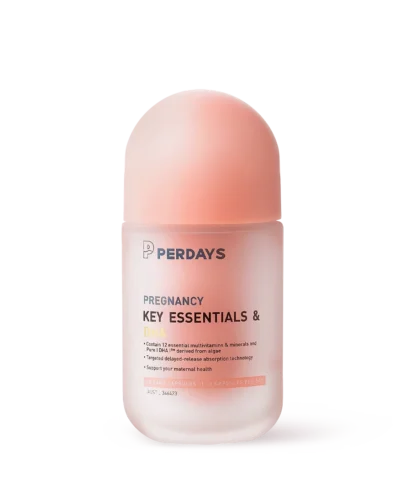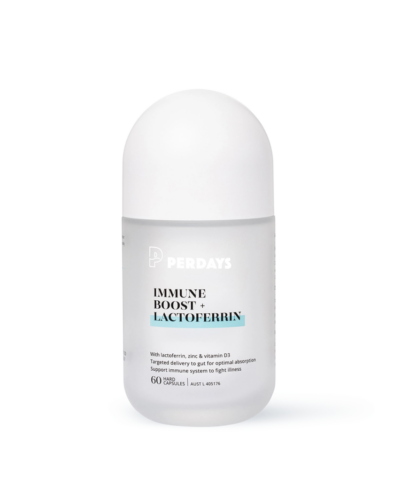The Essentials
By Perdays Team
In a Nutshell
- Proper hydration is crucial during pregnancy for the health of both the mother and baby.
- Avoid unpasteurized Kombucha during pregnancy due to potential harmful bacteria and higher caffeine levels.
- Exercise caution with electrolyte solutions and check for product recalls or allergens before consumption.
- Peppermint tea is generally safe during pregnancy in moderation, but excessive intake may worsen acid reflux or interfere with iron absorption.
- Limit green tea consumption during pregnancy due to its caffeine content, aiming to stay below 200 mg of caffeine per day.
Hydration in Pregnancy.
Pregnancy is a crucial period in a woman’s life when proper hydration becomes even more essential. Staying hydrated during pregnancy is not only beneficial for the mother’s health but also plays a vital role in the baby’s development. However, with a plethora of beverage options available, it’s crucial to be cautious and informed about what is safe and what should be avoided during pregnancy. In this article, we will address some common queries related to specific beverages and their safety during pregnancy based on reliable sources.
Is Kombucha Safe in Pregnancy?
Kombucha, a fermented tea with potential health benefits, has gained popularity in recent years. However, during pregnancy, it is essential to approach Kombucha consumption with caution. According to experts at BabyCenter, unpasteurised and homemade Kombucha may contain harmful bacteria and higher levels of caffeine, making it potentially unsafe for pregnant women. While there is no definitive evidence to prove its safety or harm during pregnancy, it is advisable to err on the side of caution and avoid unpasteurised Kombucha during this crucial period. Instead, opt for pasteurised versions or consult your healthcare provider for personalised guidance.
Is Hydralyte Safe in Pregnancy?
Hydralyte, an effervescent electrolyte solution, is commonly used to rehydrate during times of illness or dehydration. However, pregnant women need to be cautious about consuming certain formulations of Hydralyte. The Therapeutic Goods Administration (TGA) in Australia issued a product recall for the “Hydralyte Strawberry Kiwi Effervescent Electrolyte Tablets.” The recall was due to the presence of an undeclared allergen, so it’s essential to be aware of product recalls and carefully check the ingredients before using any electrolyte supplements during pregnancy. Additionally, it is always prudent to consult with a healthcare professional before incorporating any new supplement into your pregnancy routine.
Is Peppermint Tea Safe During Pregnancy?
Peppermint tea is a popular herbal beverage known for its refreshing flavour and potential health benefits. According to Healthline, peppermint tea is generally considered safe during pregnancy when consumed in moderation. However, pregnant women should avoid excessive consumption, as peppermint tea contains compounds that may trigger acid reflux or worsen heartburn. Additionally, peppermint tea may potentially interfere with iron absorption, which is a crucial nutrient during pregnancy. To ensure safe consumption, limit your peppermint tea intake and consult with your healthcare provider if you have any concerns.
Is Chamomile Tea Safe During Pregnancy?
Chamomile tea is another popular herbal infusion known for its calming properties. During pregnancy, it’s essential to exercise caution with herbal teas, including chamomile. Healthline suggests that occasional consumption of chamomile tea is generally considered safe for pregnant women. However, drinking excessive amounts of chamomile tea may not be advisable as it can potentially lead to uterine contractions. To be on the safe side, limit your intake and avoid chamomile supplements. As always, consult your healthcare provider before incorporating any herbal teas into your pregnancy diet.
Is Green Tea Safe During Pregnancy?
Green tea is celebrated for its numerous health benefits, mainly due to its rich antioxidant content. However, when it comes to pregnancy, it’s crucial to moderate green tea consumption. Green tea contains caffeine, which should be limited during pregnancy. Healthline recommends that pregnant women should keep their caffeine intake below 200 mg per day. Excessive caffeine intake during pregnancy has been linked to adverse outcomes, including low birth weight and potential developmental issues. Therefore, while occasional consumption of green tea is generally considered safe, it’s essential to monitor overall caffeine intake from various sources and opt for decaffeinated versions whenever possible.
Hydration in Pregnancy: A Comprehensive Guide to Safe Drinks Choices
In conclusion, proper hydration is crucial during pregnancy, but it’s equally important to make informed choices about the beverages you consume. While some beverages like pasteurised Kombucha, peppermint tea, and chamomile tea can be enjoyed in moderation, it’s best to avoid unpasteurised Kombucha and carefully check the ingredients of electrolyte solutions for any recalls or allergens. Furthermore, limiting caffeine intake, including that from green tea, is advised to ensure a healthy pregnancy for both the mother and baby. As always, pregnant women should consult their healthcare provider to determine the most suitable hydration and beverage choices based on individual health needs.
Looking For a Pregnancy Multivitamin with DHA?
Perdays Pregnancy Key Essentials & DHA Perdays is designed to work synergistically to support your preconception and prenatal health, thanks to our patented Nutriseal™ encapsulation technology. This pregnancy multivitamin contains a precise combination of 12 essential prenatal vitamins & minerals with algae-derived DHA and Folinic Acid to be absorbed by all women.
Support you and your baby while breastfeeding
Perdays Breastfeeding Probiotic & Vitamin D has been formulated to support infant growth and development during breastfeeding and can help reduce occurrence of symptoms of mild mastitis. Each capsule Lactobacillus fermentum CECT5716 3 billion CFU, Fructooligosaccharides 50mg, and Colecalciferol (Vitamin D3 1000 IU) 25mcg
Looking to boost your immune system while breastfeeding?
Perdays Breastfeeding Immune Boost + Lactoferrin has been formulated to support healthy immune system function and maternal health. Each capsule Bovine lactoferrin 50mg, Zinc (as zinc citrate dihydrate) 7.5mg, Ascorbic acid (Vitamin C) 30mg, and Colecalciferol (Vitamin D3 500IU) 12.5 micrograms.
References
- Is hydralyte safe in pregnancy
https://www.tga.gov.au/safety/product-recalls/hydralyte-strawberry-kiwi-effervescent-electrolyte-tablets - Is peppermint tea safe during pregnancy
https://www.healthline.com/health/pregnancy/peppermint-tea-pregnancy - Is chamomile tea safe during pregnancy https://www.healthline.com/health/pregnancy/chamomile-tea
- Is green tea safe during pregnancy
https://www.healthline.com/health/pregnancy/green-tea-while-pregnant




